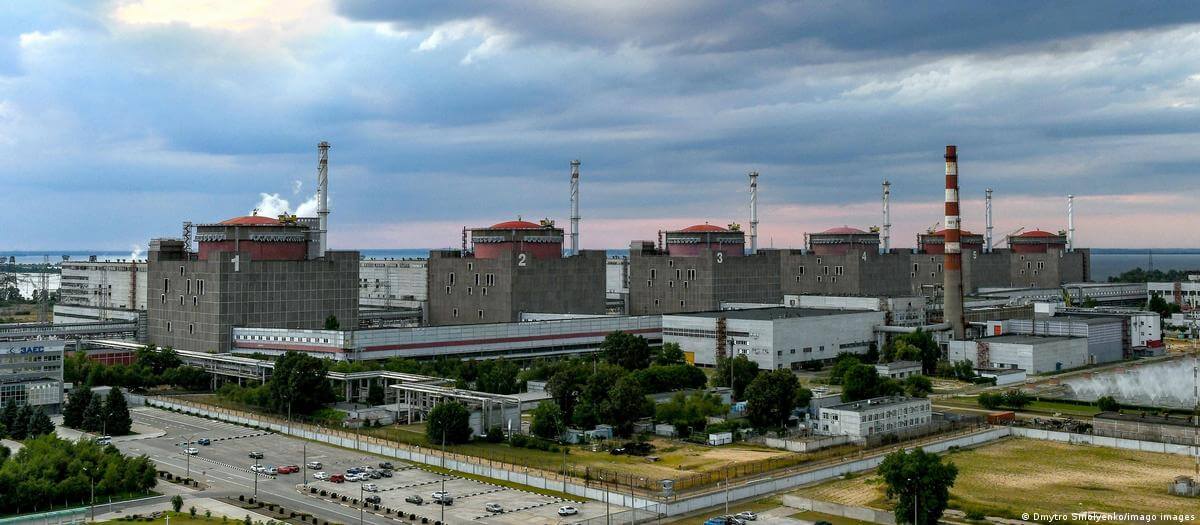International Atomic Energy Agency (IAEA) Director General Rafael Mariano Grossi warned that the situation at the Zaporizhzhia Nuclear Power Plant, Europe’s largest nuclear power plant, remains extremely dangerous and hazardous.
On Tuesday, Grossi urged Ukraine and Russia to adhere to a set of guidelines to preserve Ukraine’s Zaporizhzhia nuclear power plant, implying that he had not obtained their agreement to defend the facility.
IAEA Chief’s Warnings
Grossi explained to the UN Security Council (UNSC) that the nuclear safety and security situation at the Zaporizhzhia power plant “continues to be extremely fragile and dangerous.” He added, “Military activities continue in the region and may well increase very considerably in the near future.”
During the war, the Zaporizhzhia facility was under attack. It has lost off-site power seven times and relied on emergency diesel generators, which Grossi calls “the last line of defence against a nuclear accident.”
The IAEA chief has expressed concern over the Zaporizhzhia nuclear plant in Ukraine which remains extremely fragile and dangerous.https://t.co/dVHEMe0FsR
— ABP LIVE (@abplive) May 31, 2023
According to the IAEA chief, despite being temporarily shut down, the plant has been functioning with significantly fewer staff, which could be more sustainable.
Grossi warned, “We are fortunate that a nuclear accident has not yet happened [...] we are rolling a dice, and if this continues, then one day our luck will run out.” “So, we must all do everything in our power to minimise the chance that it does.”
Zaporizhzhia used to generate roughly 20% of Ukraine’s electricity and continued to operate despite continuous attacks in the early months of Russia’s war before halting power production in September.
Grossi has been working for months to reach an agreement to reduce the risk of a catastrophic nuclear accident from attacks in the region, which Russia has occupied for more than a year.
IAEA’s Five Principles
The IAEA chief has consistently emphasised seven essential pillars for nuclear safety and security during the crisis, including preserving facilities’ physical integrity and ensuring a secure off-site power supply. “The time has come to be more specific as to what is required. We must prevent a dangerous release of radioactive material,” he stated.
The head of the International Atomic Energy Agency (IAEA), Rafael Grossi, has formulated guidelines to protect the Zaporizhzhya nuclear plant in southern Ukraine that is currently occupied by Russian troops. #Ukraine #nuclear https://t.co/ksviw8RLy4
— ANews (@anews) May 31, 2023
After extensive discussions with both sides, Grossi established five concrete principles to prevent “a catastrophic incident” at the Zaporizhzhia facility.
- There must be no attacks of any kind from or against the plant, in particular those targeting the reactors, spent fuel storage, other critical infrastructure, or personnel.
- The nuclear facility should not be utilised as a storage or base area for heavy weaponry, such as multiple rocket launchers, or military personnel who could be used for an attack from the plant.
- All necessary precautions must be taken to ensure the plant’s off-site power supply is always accessible and secure.
- Both sides must secure all structures, systems, and components crucial to the plant’s safe and secure operations from attack or sabotage.
- Finally, no action that undermines the principles should be conducted.
According to Grossi, “These principles are to no one’s detriment and to everyone’s benefit. Avoiding a nuclear accident is possible. Abiding by the IAEA’s five principles is the way to start.”
The U.N. nuclear chief stressed that the world is fortunate a nuclear accident hasn't happened in Ukraine and asked Moscow and Kyiv to commit to preventing any attack on Europe's largest nuclear power plant "to avoid the danger of a catastrophic incident." https://t.co/eGXqvQ8nEv
— CBS News (@CBSNews) May 31, 2023
Russia Affirms Protection of Zaporizhzhia
Russian Ambassador Vasily Nebenzya stated that his country had tried to avert threats to the Zaporizhzhia plant’s safety, which he blamed on Ukraine and its “Western backers.”
Nebenzya said, “The shellings carried out by Ukraine of the power plant are absolutely unacceptable, and Grossi’s proposals to ensure the security of the Zaporizhzhia Nuclear Power Plant are in line with the measures that we’ve already been implementing for a long time in accordance with decisions taken at the national level.”
The Russian Ambassador also stated that no attacks were ever carried out from the plant’s region. Furthermore, no significant weapons or explosives are present, nor are there any military personnel who may be employed to carry out an attack.
Ukraine Demands Russian Withdrawal
Sergiy Kyslytsya, Ukraine’s UN ambassador, claimed the principles “must be complemented with the demand for full demilitarisation and deoccupation of the station.” He added that Russia continues to exploit the nuclear facility for military reasons, with around 500 military troops and 50 units of heavy artillery and equipment, ammunition, and explosives stationed nearby.
Kyslytsya highlighted, “We reiterate that, by illegally occupying ZNPP and making it an element of its military strategy, Russia has violated all key international principles of nuclear safety and security and the vast majority of its obligations under international treaties.”
Ukraine’s ambassador asserted that the IAEA principles should include evacuating Russian military personnel and workers illegally stationed at the plant to guarantee the facility’s continual power supply and a humanitarian corridor to enable a safe and orderly staff rotation.

